I'm trying to do deep-learning on time-series data.
There are 12 features for each data, but every series data don't have the same amount of data.
Some shape is [48,12], and some is [54,12], I'm trying to resize them into [50,12].
All I know until now is using resize in skimage.transform, but I don't know if it works well or not.
Is there any other solution for doing this?
For example, one of the features in the data looks like below. The shape is [55, 1] I would like to reshape it to [50, 1].
a = np.array[-5.529309, -4.6293, -3.068647, -4.897388, -4.39951, -4.753769, -3.729291,
-4.973984, -5.060155, -4.686748, -4.696322, -3.939932, -3.470778, -6.209103,
-5.586756, -4.466532, -3.193116, -5.337818, -5.596331, -4.006954, -3.499502,
-3.413331, -6.304848, -4.322914, -4.246317, -5.759098, -5.893142, -6.381444,
-4.52398, -4.198445, -5.634629, -6.276124, -5.17505, -4.322914, -4.198445,
-4.600576, -4.39951, -4.945261, -5.759098, -4.677173, -3.623971, -5.692076,
-6.563361, -5.462287, -4.868664, -5.941015, -6.400594, -5.692076, -4.591002,
-6.027186, -5.960164, -6.256975, -5.414414, -5.730374, -6.726129]
If I using resize, the data will look like below.
Before resize and after resize:
